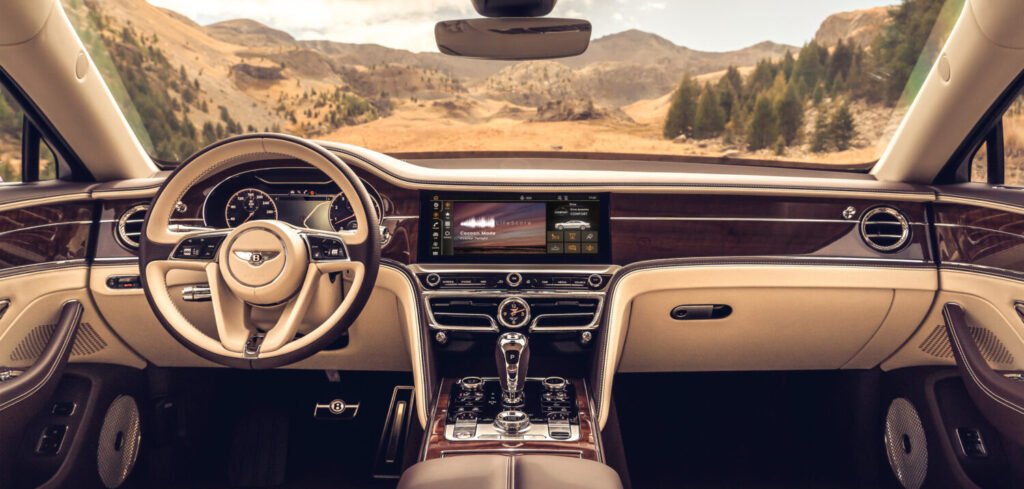Bentley says that after an extensive research and development program, it has built a demonstration vehicle that can compose a soundtrack based on drivers’ inputs and driving style, via a live composition of instrumental music in real time.
Partnering with LifeScore, which specializes in the field of ‘adaptive music’, Bentley says its goal is to have music that adapts to the ever-changing driving conditions and the driver’s style – from relaxed grand touring to energetic, spirited driving on dynamic roads.
Bentley and LifeScore worked together to create algorithms that allow vehicle inputs (such as engine RPM and acceleration) to influence the composition in real time, constantly adapting depending on the driving situation.
The signals from the vehicle create a unique sonic soundscape that responds to how and where the vehicle is being driven and in what conditions. Rather than listening to music to distract from travel, Bentley claims the vehicle is now able to compose an instrumental soundtrack to engage with the journey.
LifeScore utilizes musicians, contemporary and classical instruments and the latest technology to make recordings at the world-famous Abbey Road Studios in London. It states that all of the audio elements are recorded in fully ambisonic (full sphere surround sound) audio using more than 50 microphones to provide for all possible future formats. In the cabin of the future, sound can be designed to come from any direction at very high resolution.
From a sound bank library containing a comprehensive suite of audio data and recordings, more than 100 billion unique music tracks can be composed for a 60-minute drive. This innovative approach combines human-composed and performed music, which can then be algorithmically reproduced on demand by the vehicle and delivered to the occupant.
The composers and musicians create building blocks (cells) of raw musical material, which the vehicle then selects, combines, layers and sequences together to produce the final music in real time. The result is endless varying renditions that can be unique on every listen for long durations without sounding repetitive or synthetic.
For example, when playing music in Cocoon mode, the music builds and evolves slowly; when cruising speed is achieved, the music is sustained and calming. When Enhanced driving mode is engaged, the music is highly reactive and more exciting, sensing transmission changes, acceleration and torque, resulting in a high-intensity audio experience where driving style and sound are inextricably linked. Using artificial intelligence, the software optimizes the responses to create the music for the driver.
The algorithms are designed to produce compositions that flow through themes and variations achieved by maximizing coherence, minimizing repetition of cells and other AI techniques. Therefore, one hour’s worth of human-composed cells will generate practically unlimited hours of music. Bentley says the demonstration vehicle will provide the baseline data needed to develop the system ready for Bentley’s first full battery-electric vehicle.



